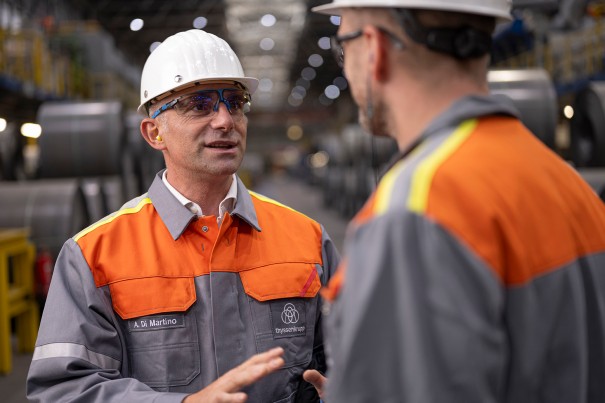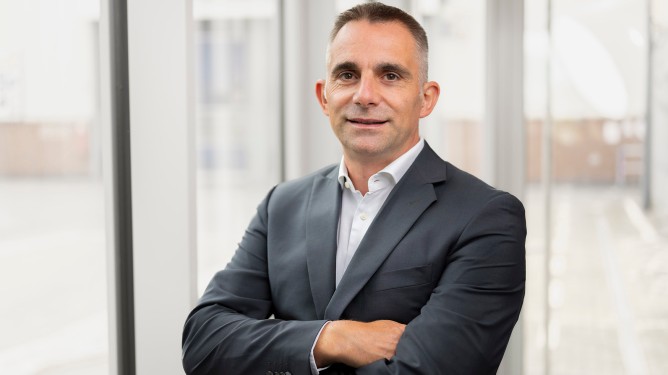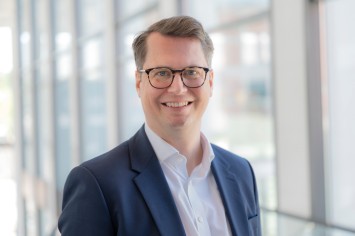How would you assess the current state of the company?
I see a company that has made great strides in the last five years. From a situation where we were practically non-existent in the market, we have moved to a position where thyssenkrupp Electrical Steel serves as a benchmark in many respects when it comes to innovative materials for transformers. And that's worldwide, not just in Europe.
How do you define your role as CEO in this situation?
My job is to develop our good company into a first-class company. That is our mission for the next five years. After all, we operate in a highly competitive environment. That's why we now need to improve our quality and performance in addition to our efficiency. And that is very much linked to effectively developing our management style and our managers and further expanding our already strong partnerships with our customers.
How would you assess your current relationship with your customers?
We are in a very good starting position because we already have a very strong bond with our customers. We feel a shared responsibility to support Europe in its green transformation and to build a resilient supply chain that also creates long-term prospects for companies. After all, the grain-oriented electrical steel business is very specialized.
What exactly do you mean by that?
Many of our customers are family-owned businesses whose owners think very long term. They don't plan their business with the next quarter in mind, but with future generations. That's exactly what we need to take more into account in our collaboration. We want to reflect, establish, and maintain this long-term approach.
The energy transition is progressing slowly in some areas. Where do you currently see the biggest challenges for the energy industry?
The biggest challenge is that the European supply chain for the entire transformer business is very fragile. To increase resilience, we need to protect our industry in Europe with smart rules for importing steel and other components from other regions. This is a balancing act, because at the same time, these rules must allow the import of the quantities of grain-oriented electrical steel required for the energy transition. In addition, our competitiveness must be secured even more firmly, despite major regional differences in energy and labor costs. And finally, we must also do our own homework.
And what are they?
I believe that we in Europe have lost our hunger and leadership in the areas of performance, quality, and technology. thyssenkrupp Steel has recognized this and is investing significantly in quality, performance, and its employees. The last point is particularly crucial, because the difference between us and our competitors is above all the people who work for us. That is why we are optimizing our organization step by step so that everyone is able to give their best and feels that they are working for the right company.

What do energy companies expect from manufacturers of grain-oriented electrical steel today?
For transformer manufacturers, our quality is measured in a simple currency: wattage loss per kilogram of material. We offer high-quality material on the market with our top grades. However, our customers are also concerned about the current uncertain geopolitical situation and trade policy. We are planning investments in our production network, thereby sending an important signal for greater delivery reliability in Europe.
How important are sustainable products in thyssenkrupp Electrical Steel's strategy?
Sustainable products are at the heart of our strategic focus, especially in connection with the decarbonization of the energy supply chain. As the global energy sector increasingly shifts toward renewable sources and electrification, the carbon footprint of every single component in the power grid is becoming more important. We expect demand for grain-oriented electrical steel from bluemint® Steel to grow exponentially. This is simply because our customers can sell their transformers much better with this argument. The lower carbon footprint sets them apart from other suppliers who do not produce sustainably.
What specific goals have you set for the next two years?
We need to make decisive progress in four areas: quality and performance, customer partnerships, cost efficiency, and further investments. If we succeed, we will be the clear market leader in Europe in the business with grain-oriented electrical steel for transformers within the next 24 months.





